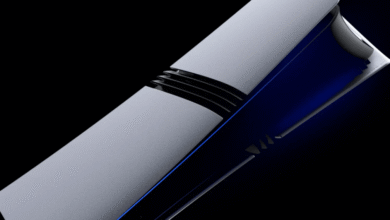Sam Altman’s New Computer Could Revolutionize AI Forever

▼ Summary
– Open the menu to access the Market flag option.
– Switch the Market flag to select your desired country.
– Changing the Market flag provides targeted data specific to the chosen country.
– The feature allows customization of data based on geographic preferences.
– The process is simple and involves only a few steps in the menu.
Sam Altman’s latest venture into computing hardware could redefine how artificial intelligence systems operate worldwide. The OpenAI CEO is reportedly developing a specialized computer designed specifically for AI workloads, potentially offering unprecedented performance and efficiency gains. This move signals a strategic shift toward optimizing hardware to complement advanced AI software.
Industry analysts suggest this new system might incorporate custom silicon architectures tailored for machine learning tasks. By creating purpose-built hardware, Altman’s project could solve critical bottlenecks in AI processing speeds and energy consumption. Early speculation indicates the computer may feature innovative cooling solutions and memory configurations to handle massive neural networks more effectively than conventional GPUs.
The timing coincides with growing demand for more powerful AI infrastructure as models become increasingly complex. Tech giants have traditionally relied on off-the-shelf components, but custom solutions like this could provide competitive advantages in training and deploying cutting-edge AI systems. Specialized hardware often delivers order-of-magnitude improvements for specific workloads compared to general-purpose processors.
While details remain scarce, the project reportedly involves collaboration with leading chip manufacturers and hardware engineers. Some experts believe this initiative could mirror Apple’s successful transition to custom silicon, but focused entirely on AI acceleration. The potential exists to create a new standard in computational architecture optimized for transformer models and other modern AI approaches.
Energy efficiency represents another critical focus area. Current AI systems consume staggering amounts of power, making sustainability a key challenge for the industry. A dedicated AI computer could implement novel power management techniques and specialized circuits to reduce environmental impact while maintaining performance.
Market observers note this development may spark renewed competition in AI hardware. Established players like Nvidia currently dominate the space, but bespoke solutions could disrupt the status quo. The project’s success may hinge on achieving the right balance between specialization and flexibility to accommodate diverse AI applications.
As AI models grow more sophisticated, the hardware running them must evolve accordingly. This initiative reflects a growing recognition that software breakthroughs alone may not sustain AI’s rapid advancement. The intersection of custom hardware and advanced algorithms could unlock new possibilities across industries from healthcare to autonomous systems. While still in development, this computer might eventually influence how researchers and enterprises approach AI infrastructure decisions.
(Source: barchart)





